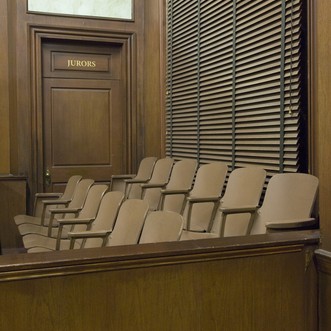Judge is admonished for belittling potential jurors

A superior court judge in Los Angeles has been admonished for belittling four potential jurors in a gang-related murder trial in May 2014.
The California Commission on Judicial Performance publicly admonished Judge Edmund Clarke, Jr. in a Sept. 29 order (PDF), the Los Angeles Times reports. The commission went beyond the findings of a three-judge panel, which found misconduct only with regards to one juror.
The potential jurors had expressed concern about serving in the trial, which was expected to last more than four weeks.
One juror had written on her hardship form, “Having Severe Anxiety!!” next to a drawing of a distressed face. She added, “I work as a waitress and make minimum wages, plus I’m planning a wedding in two months and all of these things, especially this courthouse are aggravating my anxiety terribly. On the verge of a meltdown!”
Clarke agreed to excuse the potential juror, but he took exception when she added that the clerk who was checking in potential jurors was “really disrespectful” to everyone.
At that point, Clarke told the potential juror she could stay in the hallway and tell him more at the end of the day. “I got to go,” the potential juror complained.
“No, you’re staying. You’re staying,” Clarke replied. “You’re staying on. I’ve been a judge for seven years. No one’s ever complained about my clerk. But I’ll be happy to hear your complaint at the end of the day. So go to the hall and stay and come in, act like an adult and you can face her and tell me everything she did wrong.”
At the end of the day, the potential juror apologized to Clarke, who asked the woman how she would have felt if he came to the restaurant where she works as a waitress and criticized her loudly. “If you came here thinking that this was going to be Disneyland and you were getting an E Ticket and have good time, I’m afraid you have no sense of what is going on in this building,” Clarke said.
“Now, seven years ago the first clerk that was assigned to me, she’s still here. The only clerk I’ve ever had. One juror, in all that time, out of thousands, has ever complained about her. That’s you. You can leave now knowing that’s what you accomplished.”
The commission also said Clarke had been discourteous and intimidating in questioning a juror who appeared to change a form to indicate that she did not speak English. She said she had been in the United States for 25 years. “Don’t try and fool me now, ma’am, you’ll be here a lot longer,” Clarke said.
“Most people that have been in this country for 10 years have picked up enough English. [Twenty] or so, they’re moving right along. And 25 years is—so you better have a different reason why you want to be excused than that.” Clarke later testified that he excused the juror because she was weeping loudly; she told the judge that she was ashamed because she didn’t speak English.
Clarke also told a potential juror who wrote that she had only $25 in her checking account that “every one of these lawyers spent more than that on lunch today.” He excused the juror. After she left, Clarke told everyone in the courtroom how much the juror had in her account.
When a second potential juror disclosed he had only $33 in his checking account, Clarke stated the amount and said he was putting the other juror “in the shade with that big account.”
“When members of the public give up their time for jury service,” the commission said, “they do not expect to have their private financial information disclosed in open court or to be the brunt of jokes about their limited financial resources.”
The opinion also said that, in his appearance before the commission, Clarke “showed little appreciation of the impact of his conduct on the jurors who were the recipients of his discourteous and demeaning comments.”
The opinion noted testimony from other judges and lawyers, however, that Clarke is “intelligent, professional, fair, even-tempered, and hardworking.”
Clarke said in a statement to the Los Angeles Times that he plans to ask the California Supreme Court to review the commission’s decision. “The decision chills the spontaneous and human interaction that is part of jury selection,” Clarke said.
Hat tip to the Marshall Project.



